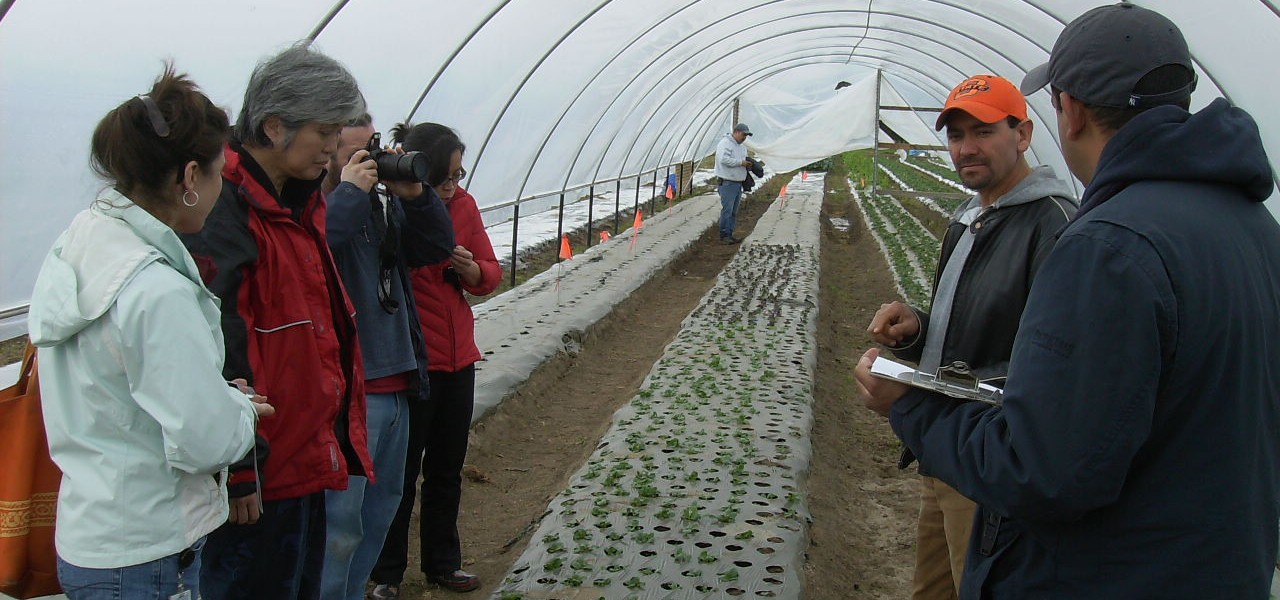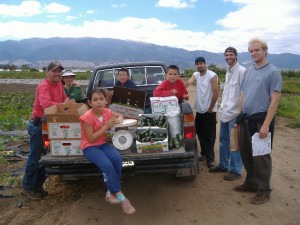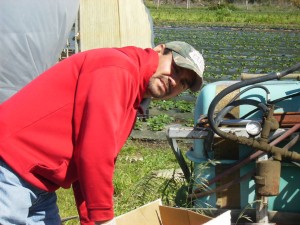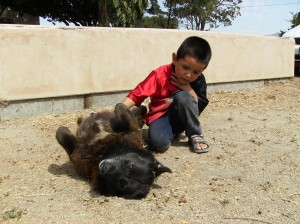This month we spoke with Hector Mora, a grower from the Agriculture and Land-Based Training Association (ALBA), and Tony Serrano, General Manager of ALBA Organics, both of Monterey County, California, to examine how a small-scale diversified grower and wholesale distributor are working together to address food safety on the farm. From farmer to distributor to consumer, food safety is an issue that affects us all. It’s also a hot topic. Right now, the Senate is debating legislation that seeks to strengthen and standardize food safety regulations, but many small and mid-sized producers will struggle to meet one-size-fits-all standards designed for big corporations.
Hector Mora and Tony Serrano are engaged at the very root of the food safety issue. After successfully completing ALBA’s Farm Incubator program, which provides training and business opportunities for farm workers and aspiring farmers, Hector is now growing certified organic produce on his own and selling it at local farmers markets and through ALBA Organics, a nonprofit wholesale distribution center managed by Tony. Both Hector and Tony emphasize the importance of food safety for the their customers and their farm business. “[Food safety certification] is a requirement in most places. I want to keep the consumer safe, and it is better for sales,” Hector notes.
Food safety standards are a cornerstone of ALBA’s Farm Incubator curriculum. “Food safety is part of the hands-on training [at ALBA]. All of the common sense things that are included in food safety certification are done here every day,” says Tony. These practices include utilizing proper sanitation facilities, maintaining a clean environment, wearing gloves during harvest and post-harvest handling, preventing soil contamination, and using clean tools.
According to Tony, while food safety implementation is part of ALBA’s daily routine, official certification is not an easy process for small-scale producers and distributors. The extensive paperwork and high costs required to maintain certification are barriers for many small farmers and deter several from pursuing food safety certification. “It would be easier if there were free inspections or audits on food safety so growers who are not up to snuff could correct what they are doing and continue growing,” explains Tony.
The legislation being considered in the Senate, The FDA Food Safety Modernization Act (S. 510), could pose yet another barrier for small, organic producers like Hector if it creates standardized, on-farm regulations that cater to industrial-scale producers. Says Hector, “The government is putting up another barrier for small producers.” Tony elaborates by noting the “level of complexity involved.” “We can’t compete with big producers. Passing this legislation will take out small farmers or seriously set them back, forcing them to work for big operations or go out of business.”
Despite these barriers, ALBA recognizes the importance of meeting food safety requirements and the benefits of certification. “At some point certification will be mandatory. We want to work ahead of the curve,” Tony affirms.
To this end, ALBA is seeking food safety certification under GLOBALG.A.P., a private sector organization that sets voluntary standards for the certification of agricultural products and conducts annual inspections of producers. Certification of ALBA Organics as a food handler will also require that all growers who sell to ALBA Organics be certified individually. Currently, a GLOBALG.A.P. pilot program at ALBA is in the works – the first of its kind in the United States. Hector and Tony believe this certification will open up new business opportunities for ALBA and its many producers by allowing them to compete with other certified growers and distributors.
ALBA and its farmers like Hector are ahead of the curve, trailblazers who are taking the necessary steps to certify that the food they produce and distribute is as safe as can be, and doing so on a scale that meets their production and distribution needs. Their experiences point out that while everyone has a stake in ensuring that our food is safe, not every producer should be treated the same. The diversity of American growers and distributors, from small farms selling in their local communities to the large corporations that sell globally, should all be able to fit into our food safety system.






